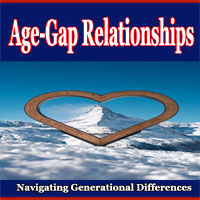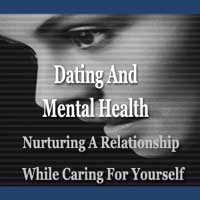


The Path To Personal Growth
 Mistakes are an inevitable part of the human experience. We all make them, and they can range from minor slip-ups to significant life-altering errors. However, the value of mistakes lies not in the errors themselves but in our ability to learn from them. Learning from past mistakes is an essential aspect of personal growth, and it empowers us to become wiser, more resilient individuals.
Mistakes are an inevitable part of the human experience. We all make them, and they can range from minor slip-ups to significant life-altering errors. However, the value of mistakes lies not in the errors themselves but in our ability to learn from them. Learning from past mistakes is an essential aspect of personal growth, and it empowers us to become wiser, more resilient individuals.
Self-Reflection: The first step in learning from past mistakes is to engage in self-reflection. Take the time to analyze your actions and decisions. Understand why you made a particular choice, and consider the consequences it brought. Self-reflection allows you to gain insight into your motivations and thought processes.
Acceptance: Accepting that you've made a mistake is a crucial part of the process. It's easy to become defensive or deny our errors, but true growth comes from acknowledging our imperfections. By embracing your mistakes, you open the door to self-improvement.
Identifying Patterns: Often, our mistakes are not isolated incidents but part of a pattern of behavior or decision-making. By identifying these patterns, you can take proactive steps to break them. Recognizing your tendencies can prevent you from repeating the same mistakes.
Seeking Feedback: Don't hesitate to seek feedback from trusted friends, mentors, or colleagues. They can offer valuable perspectives on your actions and decisions. Constructive criticism can provide fresh insights and help you see your mistakes from different angles.
Empathy: Extend empathy towards yourself. Mistakes are part of the human experience, and beating yourself up over them only hinders your growth. Treat yourself with the same kindness and understanding you would offer to a friend.
Taking Responsibility: Taking responsibility for your mistakes is a sign of maturity. It means owning up to your actions, apologizing when necessary, and making amends when possible. It's a step toward rectifying the situation and preventing similar errors in the future.
Goal Setting: Learning from your mistakes involves setting goals for personal growth. Consider what changes you can make to avoid repeating past errors. Establish concrete steps and a timeline for your self-improvement journey.
Learning Patience: Recognize that personal growth and learning from mistakes take time. Be patient with yourself as you work through your flaws and strive for improvement. Growth is a gradual process, and setbacks are a natural part of it.
Teaching Others: Sharing your experiences and the lessons you've learned from your mistakes can be a powerful way to reinforce your understanding and help others avoid similar errors. Teaching and mentoring can be fulfilling and provide an opportunity for you to give back.
Forgiveness: Forgive yourself. Holding onto guilt and regret can be counterproductive. Forgiveness is liberating and allows you to move forward with a clearer mind and a lighter heart.
Learning from past mistakes is an integral part of personal growth. It's not about avoiding errors but about using them as stepping stones for self-improvement. By embracing self-reflection, accepting your mistakes, identifying patterns, seeking feedback, and taking responsibility, you can transform your missteps into valuable life lessons. Remember that the path to becoming a wiser and more resilient individual is built on the foundation of learning from your past mistakes.
Love Knows No Boundaries
 One of the key drivers behind the growing acceptance of age-gap relationships is the acknowledgment that love is a deeply personal and unique experience. People enter into romantic partnerships based on a myriad of factors, including shared interests, values, and emotional connection. The age of the individuals involved, while significant, is just one piece of the puzzle.
One of the key drivers behind the growing acceptance of age-gap relationships is the acknowledgment that love is a deeply personal and unique experience. People enter into romantic partnerships based on a myriad of factors, including shared interests, values, and emotional connection. The age of the individuals involved, while significant, is just one piece of the puzzle.
Acceptance of age-gap relationships is a testament to the evolving nature of societal norms and values. As societies worldwide become more diverse and open-minded, people are increasingly encouraged to follow their hearts rather than conform to rigid expectations based on age. This cultural shift reflects a deeper understanding of the complexities of human connection and the importance of personal happiness.
In addition, media and popular culture have played a role in normalizing age-gap relationships. High-profile celebrity couples with significant age differences, such as George and Amal Clooney or Priyanka Chopra and Nick Jonas, have showcased that love can flourish across generations. These couples have not only raised awareness but have also provided positive representations of age-gap relationships in the public eye.


Navigating The Complex Landscape
 Dating often requires individuals to put themselves out there, embrace vulnerability, and face potential rejection. These challenges can be daunting for anyone, but for those managing mental health issues, they can be even more overwhelming. Here are some of the common challenges:
Dating often requires individuals to put themselves out there, embrace vulnerability, and face potential rejection. These challenges can be daunting for anyone, but for those managing mental health issues, they can be even more overwhelming. Here are some of the common challenges:
Stigma: The stigma surrounding mental health can make individuals hesitant to disclose their conditions, fearing judgment or rejection.
Anxiety And Depression: Conditions like anxiety and depression can heighten self-doubt, making it challenging to approach potential partners or maintain a positive outlook.
Self-Esteem: Mental health issues can erode self-esteem and self-worth, which can affect an individual's confidence in the dating world.
Rejection Sensitivity: Some individuals may be more sensitive to rejection, which can exacerbate their fear of dating setbacks.
Communication Difficulties: Effective communication is key in dating, and mental health challenges may hinder one's ability to express themselves openly.
Tips For Navigating Dating Challenges With Mental Health
Self-Acceptance: Acceptance of your mental health condition is a critical first step. Embrace it as a part of who you are, not as something that defines you entirely.
Open Communication: When you feel comfortable, communicate with your potential partner about your mental health. Honesty can foster understanding and empathy.
Navigating The Modern Landscape Of Romance
 3. Diverse Dating Pool
3. Diverse Dating Pool
The digital world has shattered geographical boundaries, allowing people to connect with individuals from different walks of life. This has led to greater diversity in the dating pool, enabling people to explore relationships with partners they might never have encountered otherwise. Cultural, ethnic, and geographic differences are now bridges rather than barriers to love.
4. Finding Love From Home
The accessibility of potential partners and the ability to screen matches has transformed the dating experience. Users can review profiles, read about interests and values, and engage in meaningful conversations before deciding to meet in person. The result is a more informed, selective, and efficient dating process.
5. Online Relationship Building
Couples in the digital world often find that they can build strong connections even before meeting in person. Through thoughtful messages, video chats, and shared experiences, individuals can develop deep emotional bonds, creating a strong foundation for their relationship.
6. Shifting Dynamics In Dating
Traditional gender roles and expectations in dating and relationships have evolved. The digital world has given rise to more egalitarian dynamics in partnerships. Women and men alike have opportunities to take the lead, express themselves, and navigate relationships in a way that feels authentic to them.






Unveiling The Mystical Ties That Bind Us
 Serendipity, on the other hand, is the unexpected discovery of something fortunate, often leading to a sense of destiny or purpose. A cosmic connection is often associated with the serendipitous encounters that feel fated, such as meeting a person who becomes a lifelong friend or a romantic partner.
Serendipity, on the other hand, is the unexpected discovery of something fortunate, often leading to a sense of destiny or purpose. A cosmic connection is often associated with the serendipitous encounters that feel fated, such as meeting a person who becomes a lifelong friend or a romantic partner.
Personal Relationships And The Cosmic Connection
In the context of personal relationships, a cosmic connection implies that certain connections are more than just chance or compatibility. It suggests that there are deeper forces at play that draw people together, creating profound bonds that transcend the ordinary. Whether in romantic relationships, friendships, or mentorships, these connections are believed to carry a special significance.
Spiritual And Metaphysical Beliefs
The belief in a cosmic connection often intersects with spiritual and metaphysical worldviews. In some spiritual traditions, the concept of a cosmic connection is linked to the idea of karma, suggesting that individuals are drawn to one another based on their past actions and energies. In metaphysical circles, there is an exploration of the notion that thoughts and intentions can influence the cosmic web, allowing individuals to manifest their desires and connections.
Cultivating A Connection With The Cosmos
While the concept of a cosmic connection is filled with mystery and wonder, it also invites individuals to cultivate a deeper awareness and appreciation of the universe. This may involve practices such as meditation, mindfulness, or the exploration of metaphysical and spiritual beliefs. By connecting with the cosmos, individuals aim to enhance their understanding of the world and their place within it.
Understanding The Essence Of A Spiritual Bond
 A spiritual bond is often described as an unspoken connection between individuals, a sense of harmony that goes beyond words or physical interactions. It is the feeling of being deeply connected on a soul level, where two individuals resonate with each other's innermost thoughts and emotions. This type of bond is not limited to romantic relationships; it can manifest in friendships, familial connections, or even mentor-mentee relationships.
A spiritual bond is often described as an unspoken connection between individuals, a sense of harmony that goes beyond words or physical interactions. It is the feeling of being deeply connected on a soul level, where two individuals resonate with each other's innermost thoughts and emotions. This type of bond is not limited to romantic relationships; it can manifest in friendships, familial connections, or even mentor-mentee relationships.
One of the defining features of a spiritual bond is the profound sense of understanding and acceptance it entails. It is as if the two people involved can peer into each other's souls, recognizing and embracing each other's strengths, weaknesses, and quirks. In such relationships, judgment is replaced with empathy, criticism with unconditional support, and words with shared silences.